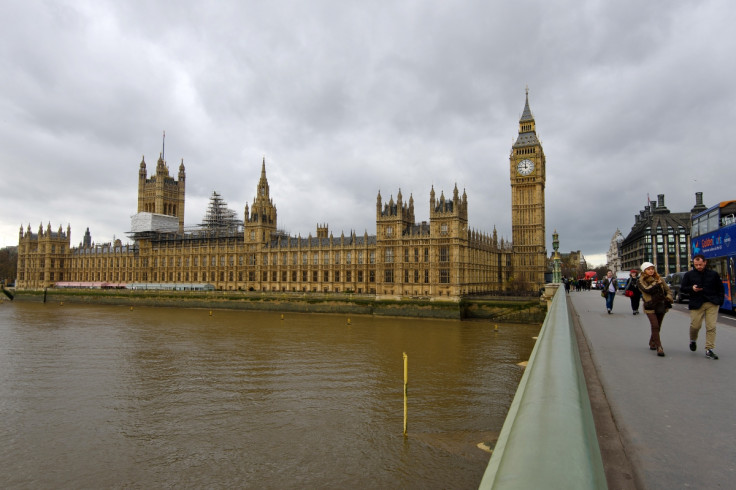To Jess Phillips and all MPs - if you don't want our scrutiny, don't work in politics

Watching her discuss the perils of being outspoken and honest as a politician, I do feel some sympathy for MP Jess Phillips.
Though she doesn't explicitly mention it in her Guardian Opinion video, it's clear the backlash to her comments on the Cologne New Year's Eve assaults is still fresh in her mind. Her comparison with a normal night out in Birmingham might have been slightly hyperbolic, true, but the point she was trying to make – that sexual violence isn't actually a foreign cultural import – was sound. She later revealed that she had personally been assaulted by a group of men as a teenager.
It's always advisable to pick your words carefully if you're talking about a sensitive issue in front of a large audience. However, I strongly suspect she would have still faced similar hostility no matter how measured her statements were. Many people don't want to admit that sexual violence is a real problem in the UK. Some of them also don't like women very much, particularly opinionated women. Whatever you personally think of Jess Phillips, it's impossible to deny that misogyny has been a factor in criticism when she has actually received rape threats on social media for daring to speak out.
What I don't agree with is her more general claim: that politicians generally face too much public criticism and this is bad because it makes them regulate their behaviour too carefully. Honestly, I'm more inclined to draw the opposite conclusion. It's quite amazing what some of them seem to be able to get away with even when their dodgy dealings are exposed.
Take former defence secretary Liam Fox, who was forced to humiliatingly resign from the Cabinet for dangerously blurring the boundary between his government role and personal friendships – inviting his best mate to attend Ministry of Defence meetings without first obtaining security clearance. And then of course there's Grant Shapps, who lied about using a false identity and pursuing a secret, second career as a "multimillion-dollar web marketer" while he was also a serving MP.
When politicians do attempt to protect themselves and their colleagues from public judgement, the consequences can sometimes be horrific. Consider former Liberal Democrat MP Cyril Smith, for example, who used his power and influence to sexually abuse young boys for over four decades. This is why it's so worrying that MPs are planning to use human rights laws to avoid being named if they're arrested by the police.
I know for a fact that many of them think Jess Phillips is a breath of fresh air. Unsurprisingly, there are others who disagree
True, it's unlikely this is the kind of thing Jess Phillips is thinking of when she asks us to give politicians an easier ride, but the point is still valid. MPs face an unusual amount of scrutiny because they do a job that gives them an unusual amount of power.
It's important to distinguish between reasonable, if vigorous, criticism and misogynistic personal abuse. Obviously, the latter is completely unacceptable, though I don't agree with Phillips' claim that she is more of a target because she "refuses to toe the party line". In reality, being a woman who has achieved any degree of prominence seems to be enough. What's more, David Cameron's Twitter mentions are proof that it's not only female politicians who are the subjects of social media hate.

In her Guardian video, though, Jess Phillips seems to conflate genuine nastiness and a level of scrutiny that is reasonable given her position. She's made a conscious decision to share her real views rather than becoming a party mouthpiece. While many people might consider that admirable, she does need to acknowledge the significance of her role as an MP.
When you express an opinion as a politician, there are often wider repercussions that don't exist for private individuals. If you say something that people don't agree with, therefore, it's hardly surprising if they express their own, negative opinion in return.
More generally, MPs are tasked with representing their constituencies and making decisions of the general population. Voters put them there, so it's not surprising ordinary people might have thoughts on whether they're doing a good job. I know for a fact that many of them think Jess Phillips is a breath of fresh air. Unsurprisingly, there are others who disagree.
If you enter Parliament with the specific goal of doing something unorthodox, you can't claim to be surprised when it turns out to be controversial. For example, given Labour's current internal issues, many supporters felt it was unhelpful for Phillips to inform the media she had threatened to metaphorically stab the party's leader "in the front – not the back". Phillips certainly isn't obligated to obey the requests of these critics, but they've got every right to share their views.
The same was equally true when she told Diane Abbott to "f***off" and when she wrote a blog for the Huffington Post accusing Corbyn of "mansplaining".
Though she loves to talk about being "ordinary", it's hard to escape the feeling that Phillips is demanding special treatment. It seems that she wants to be able to say what she likes without consequence, and she's peeved at the plebs for answering back instead of showing her the deference she thinks she deserves.
© Copyright IBTimes 2025. All rights reserved.






















